No dig garden plants – 10 flower choices ideal for the easy growing option
These no dig garden plants are perfect for the soil health promoting method

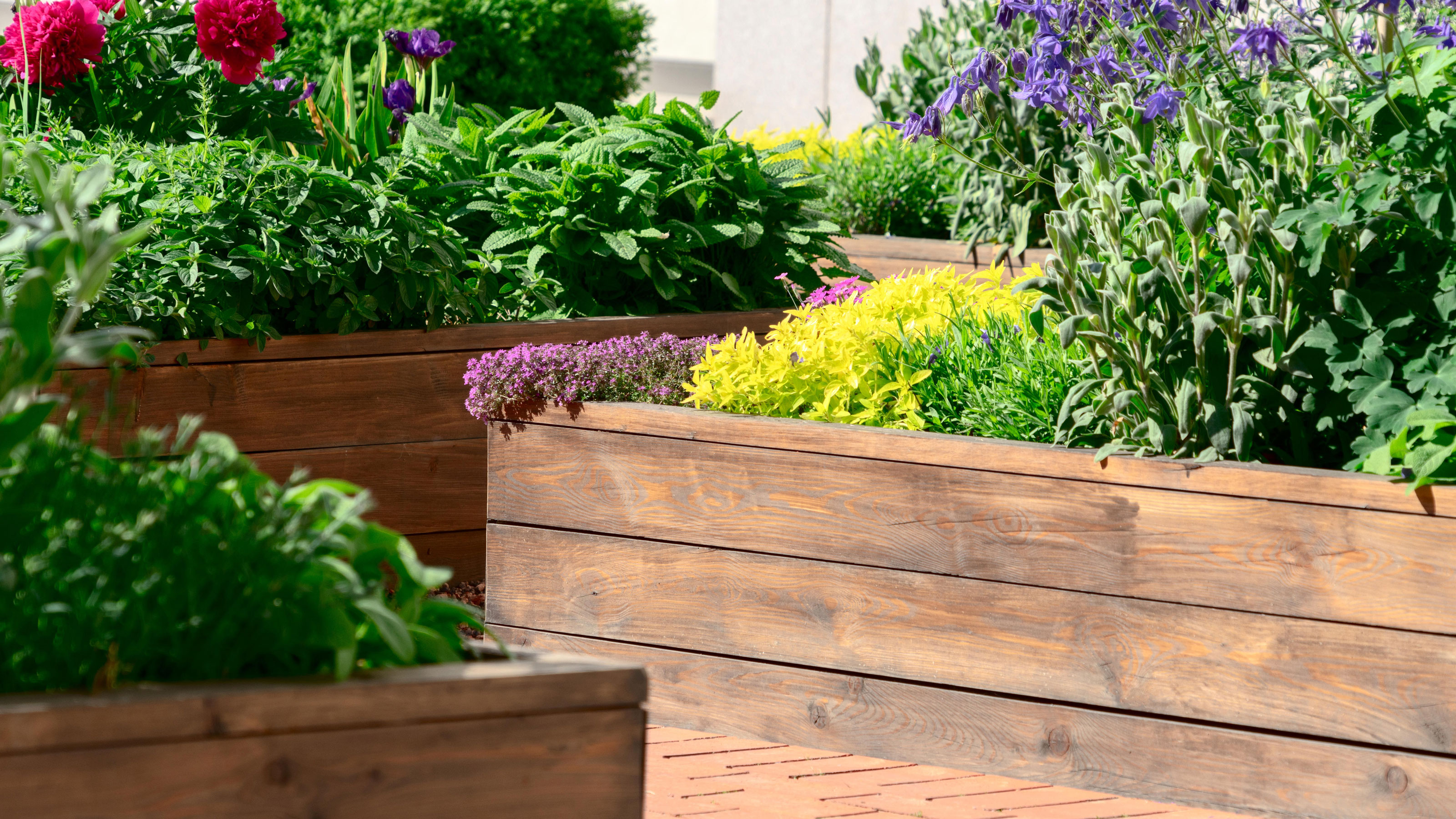
Design expertise in your inbox – from inspiring decorating ideas and beautiful celebrity homes to practical gardening advice and shopping round-ups.
You are now subscribed
Your newsletter sign-up was successful
Want to add more newsletters?

Twice a week
Homes&Gardens
The ultimate interior design resource from the world's leading experts - discover inspiring decorating ideas, color scheming know-how, garden inspiration and shopping expertise.

Once a week
In The Loop from Next In Design
Members of the Next in Design Circle will receive In the Loop, our weekly email filled with trade news, names to know and spotlight moments. Together we’re building a brighter design future.

Twice a week
Cucina
Whether you’re passionate about hosting exquisite dinners, experimenting with culinary trends, or perfecting your kitchen's design with timeless elegance and innovative functionality, this newsletter is here to inspire
No dig garden plants are the options that are ideal for this growing method. All plants rely on good soil to thrive and no dig is an increasingly popular way of growing organically that boosts the soil’s eco-system.
The method also means less time spent digging and weeding. It leaves soil undisturbed so fewer weeds germinate and compost mulches on the surface make it easy to pull out those that do, as well as feeding the soil.
While no dig gardening is often associated with vegetable gardens, it also works really well for perennial flower beds and cutting gardens and these plants are our favorites if you’re following this strategy in your backyard.
No dig garden plants
In the no dig method, flower bed ideas often include raised garden bed ideas, but planting in the ground works, too.
Whether you are embracing this method alone, or embarking on permaculture gardening to mimic nature in your yard, try these no dig garden plants.
1. Nepeta ‘Walker’s low’
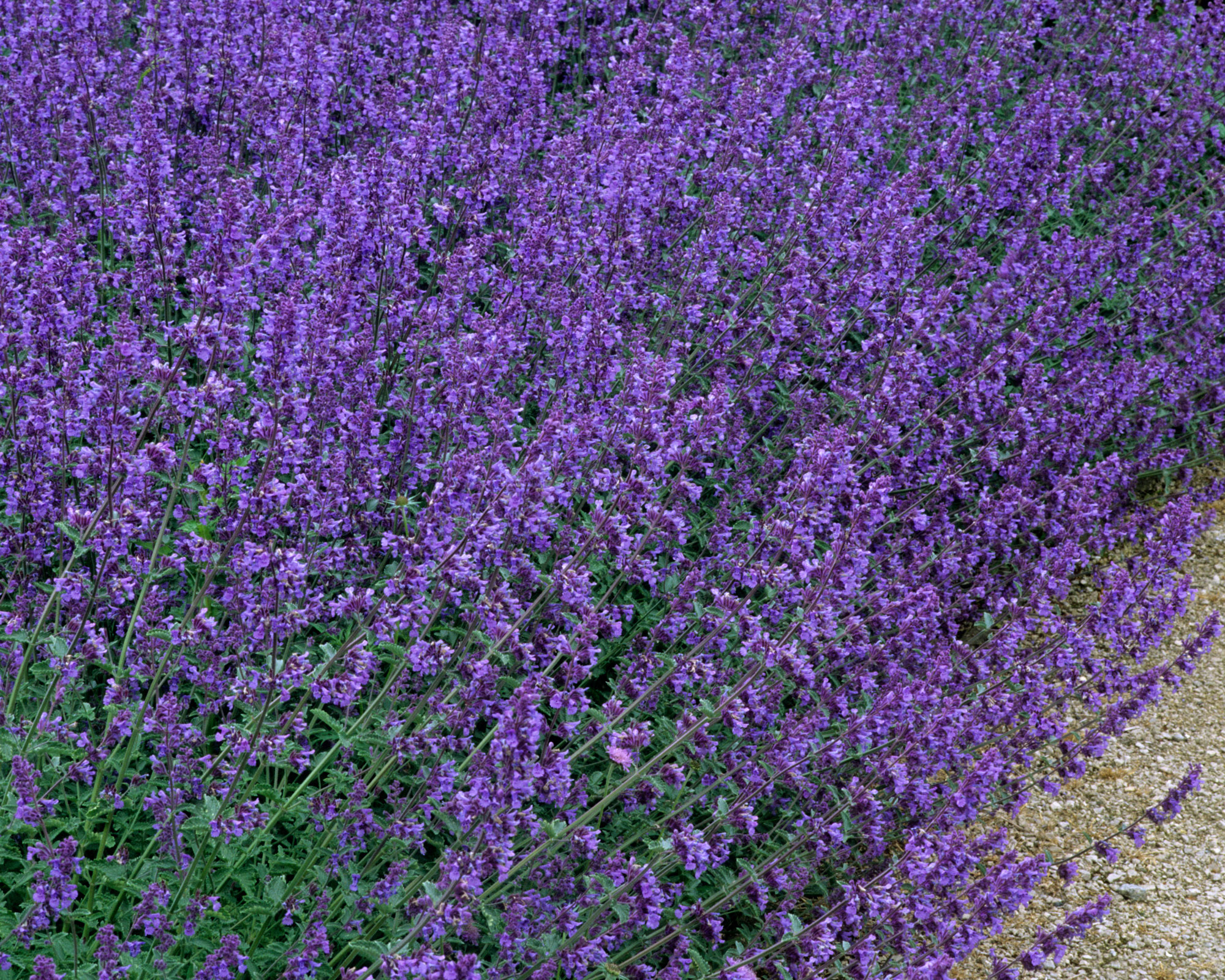
Fabulous for encouraging bees and butterflies into the garden from June to September, this hardy perennial with deep violet to lilac-blue flowers dies back in fall, then fresh new growth appears again in spring so it’s a good choice from among no dig garden plants. It likes a position in full sun or partial shade, and makes a good scented edge for paths.
Height: 24in (60cm)
Design expertise in your inbox – from inspiring decorating ideas and beautiful celebrity homes to practical gardening advice and shopping round-ups.
Spread: 20in (50cm)
2. Alchemilla mollis (lady’s mantle)
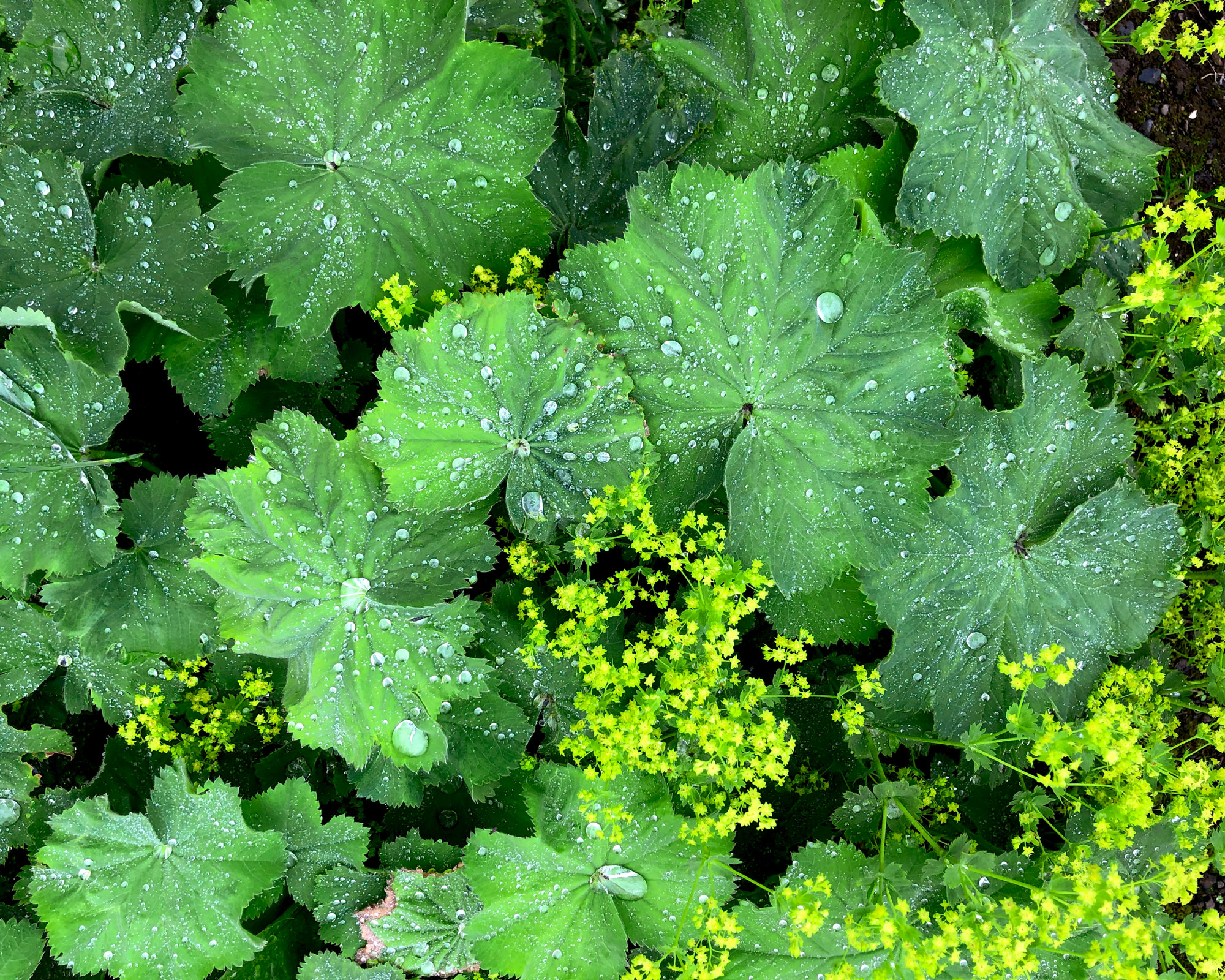
One of the prettiest of the no dig garden plants you might choose, the soft velvety fan-shaped leaves of lady’s mantle have scalloped edges that will add a pretty frothy effect to a bed. Nectar rich to attract pollinating insects, this vigorous plant will survive anything, is happy in full sun or partial shade, thrives in heavy soil and self-seeds freely.
Height: 4 to 20in (10 to 50cm)
Spread: 4 to 20in (10 to 50cm)
3. Mexican fleabane (Erigeron karvinskianus)
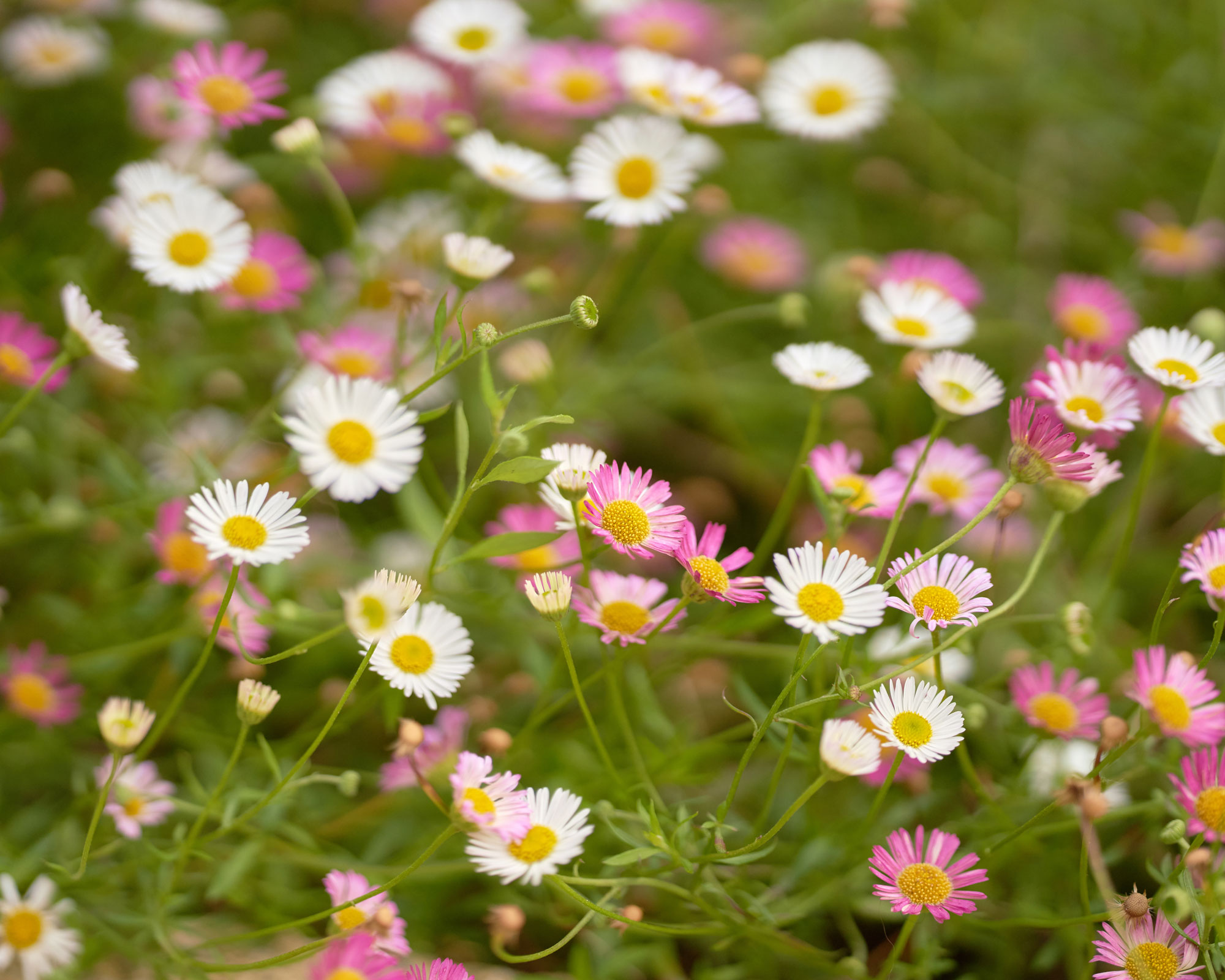
For nine months of the year, from April right round to November, this hardworking little plant has cascades of delicate white daisies that gradually shift to pink. Easy to please, plant it in full sun for best results. It self-seeds making it one of the most easy to look after no dig garden plants.
Height: 4 to 20in (10 to 50cm)
Spread: 20in to 3ft (50cm to 1m)
4. Salvia ‘Mainacht’

With spikes of indigo-blue flowers in early to midsummer, this hardy perennial needs plenty of space in a sunny spot with good drainage and it will keep on giving all summer long. It needs minimal care so is a good choice if you’re after self-sufficient no dig garden plants.
Height: 29in (75cm)
Spread: 18in (45cm)
5. Geranium ‘Album’
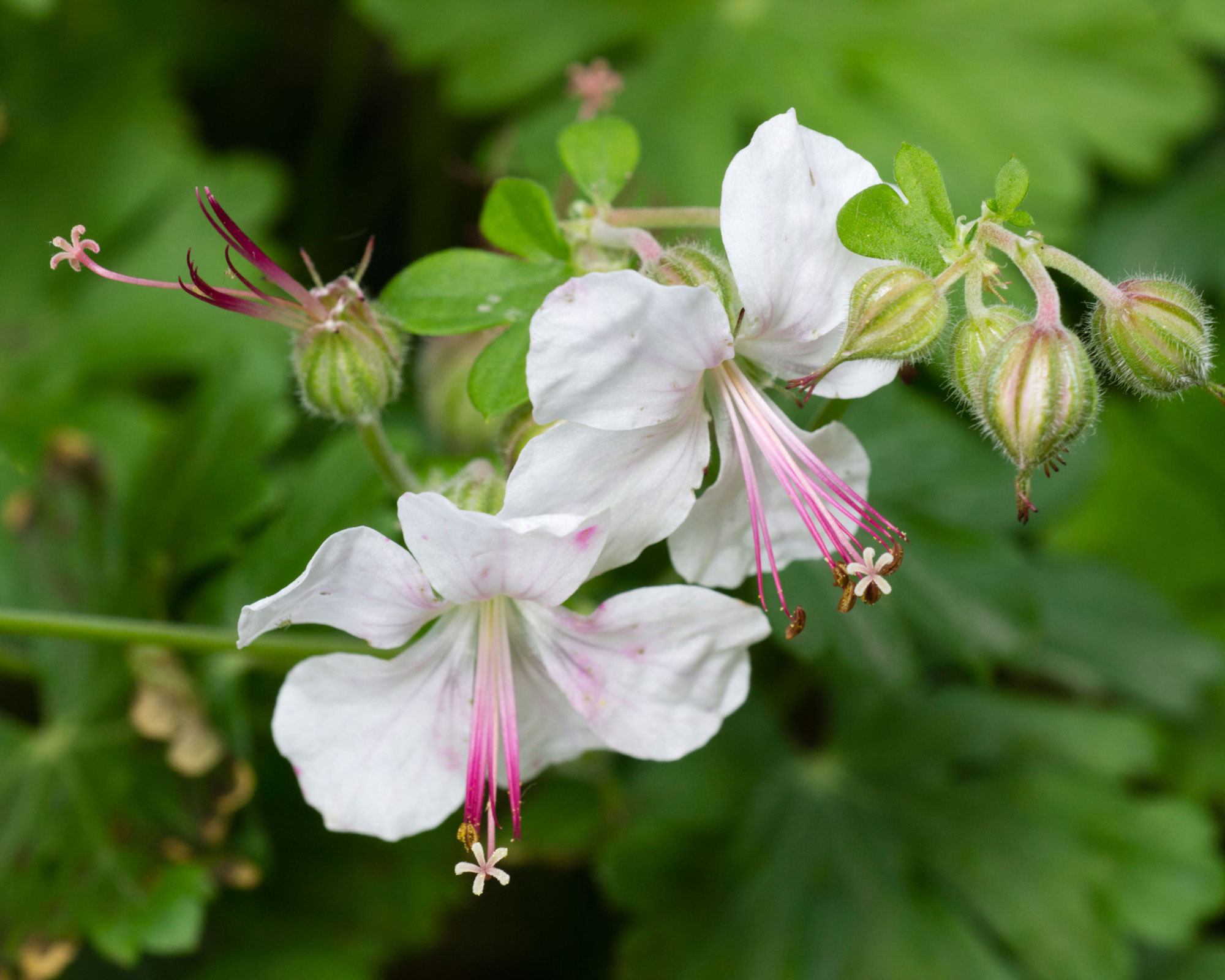
With its bright white saucer-shaped flowers this spreading herbaceous perennial works well at the front of a bed to soften the edges. Thriving in full sun or partial shade, it quickly forms loose hummocks of deeply cut, dark green leaves that help suppress weeds.
Height: 4 to 6in (10 to 15cm)
Spread: 20in to 3ft (50cm to 1m)
6. Mexican feather grass (Stipa tenuissima)
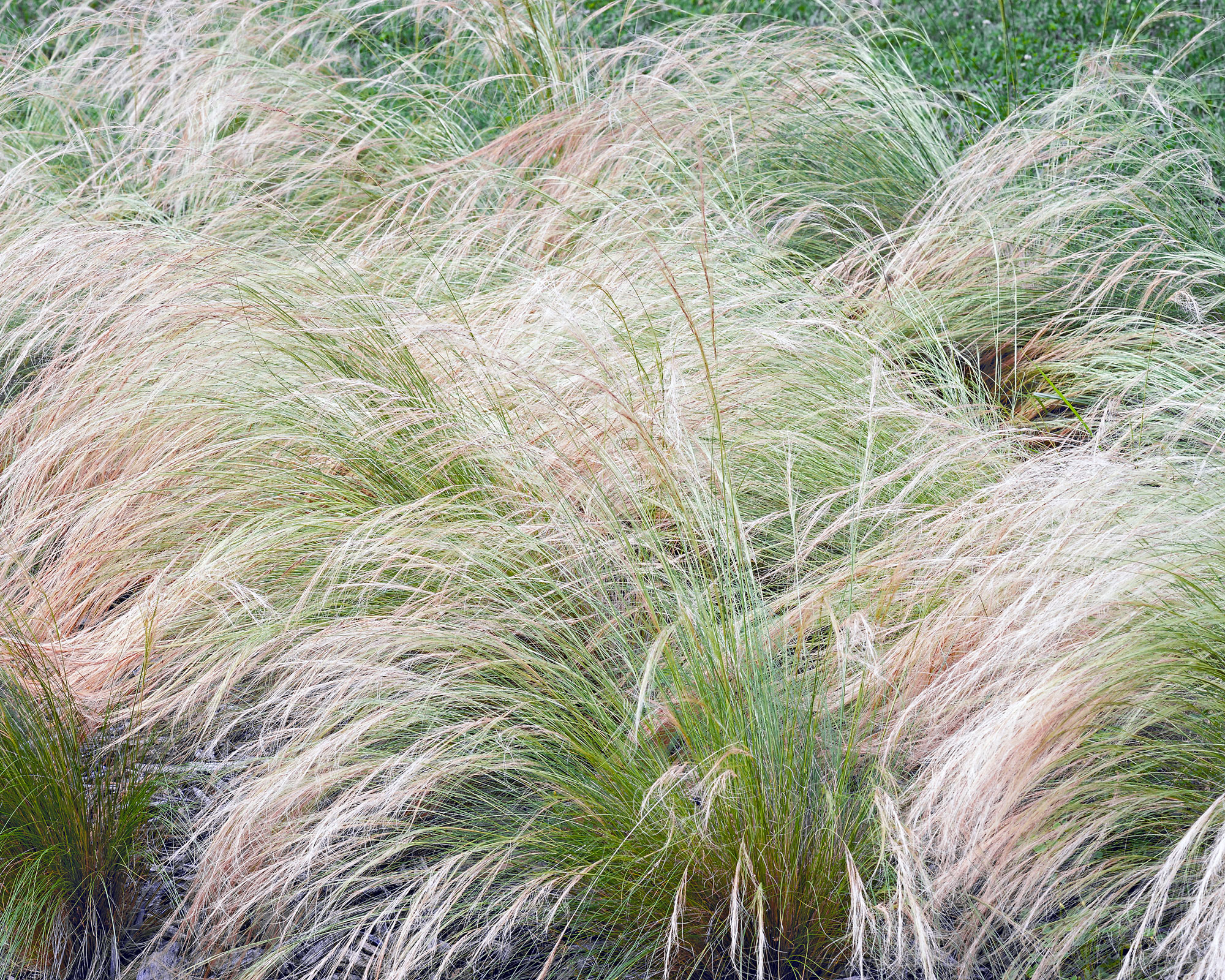
With fine arching leaves and tall fluffy plumes of flowers this low maintenance ornamental grass makes a strong punctuation point in a bed and is good for introducing movement as the breeze rustles it. Preferring well-drained soil in full sun, it will thrive in a mixed bed and is good for dried displays too.
Height: 24in (60cm)
Spread: 12in (30cm)
7. Pittosporum ‘Golf ball’
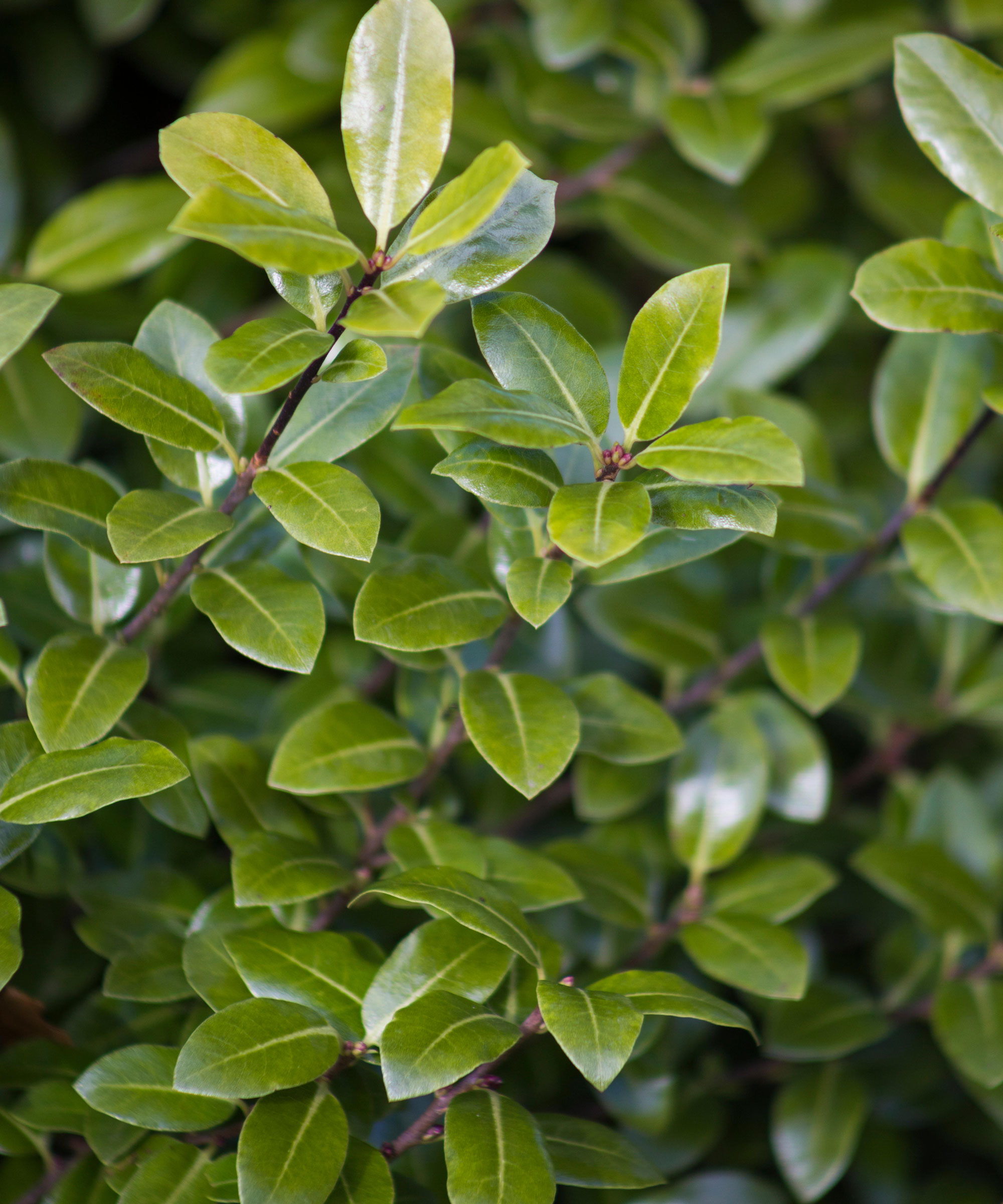
With small, wavy-edged leaves that come in a range of lovely colors, this fast growing and easy shrub is a good choice for adding structure and ornamental interest as it can be clipped into an attractive shape. Grows best in fertile, moist but well-drained soil, either in full sun or partial shade.
Height: 20in to 3ft (50cm to 1m)
Spread: 20in to 3.2ft (50cm to 1m)
8. Rosa ‘Winchester Cathedral’
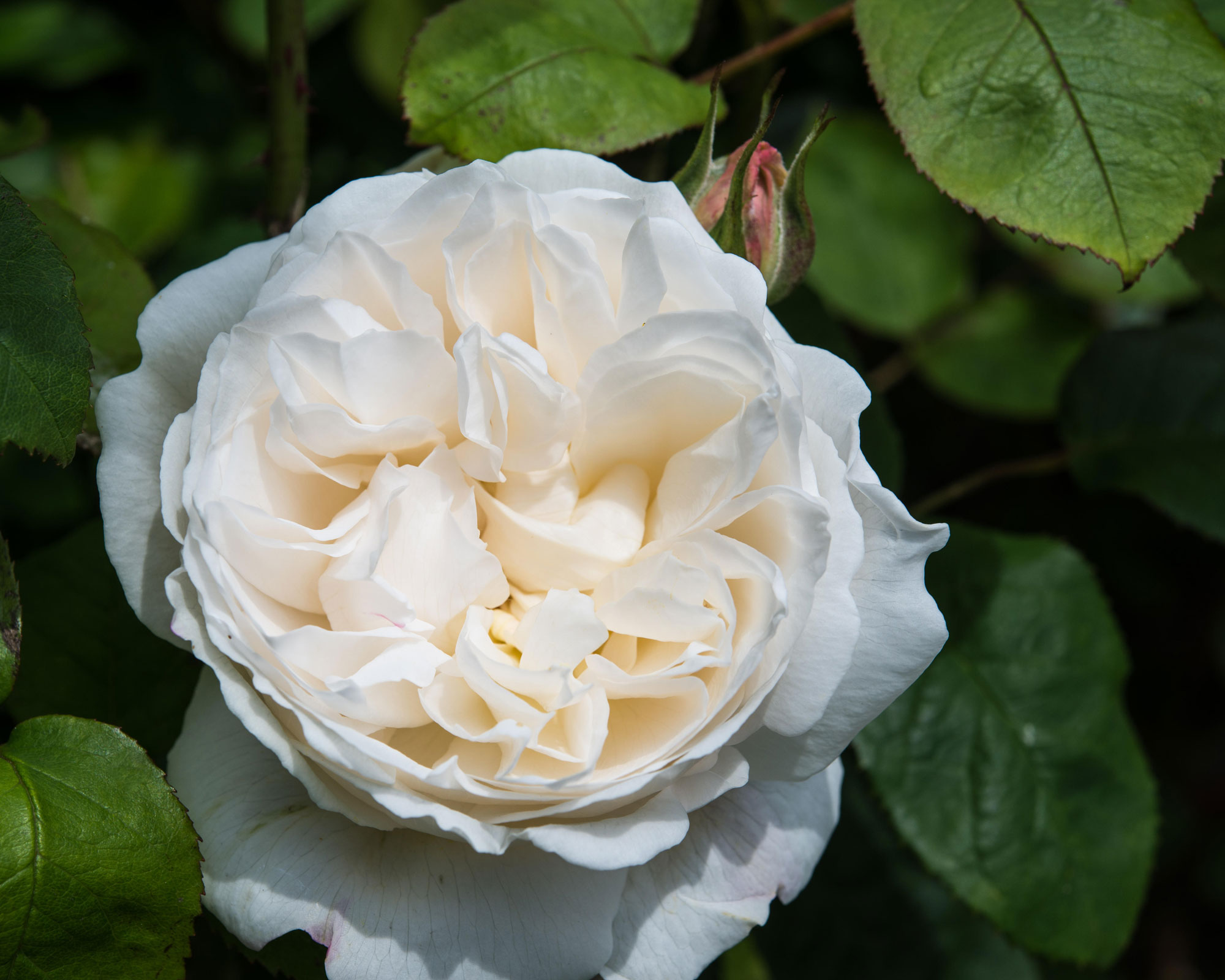
For pure beauty this repeat flowering shrub rose is hard to beat. It produces masses of fragrant white blooms with the occasional touch of pink, suits mixed borders and all soil types, likes full sunlight, and is scented, too.
Height: 4ft (125cm)
Spread: 3.5ft (110cm)
9. Hydrangea ‘Annabelle’
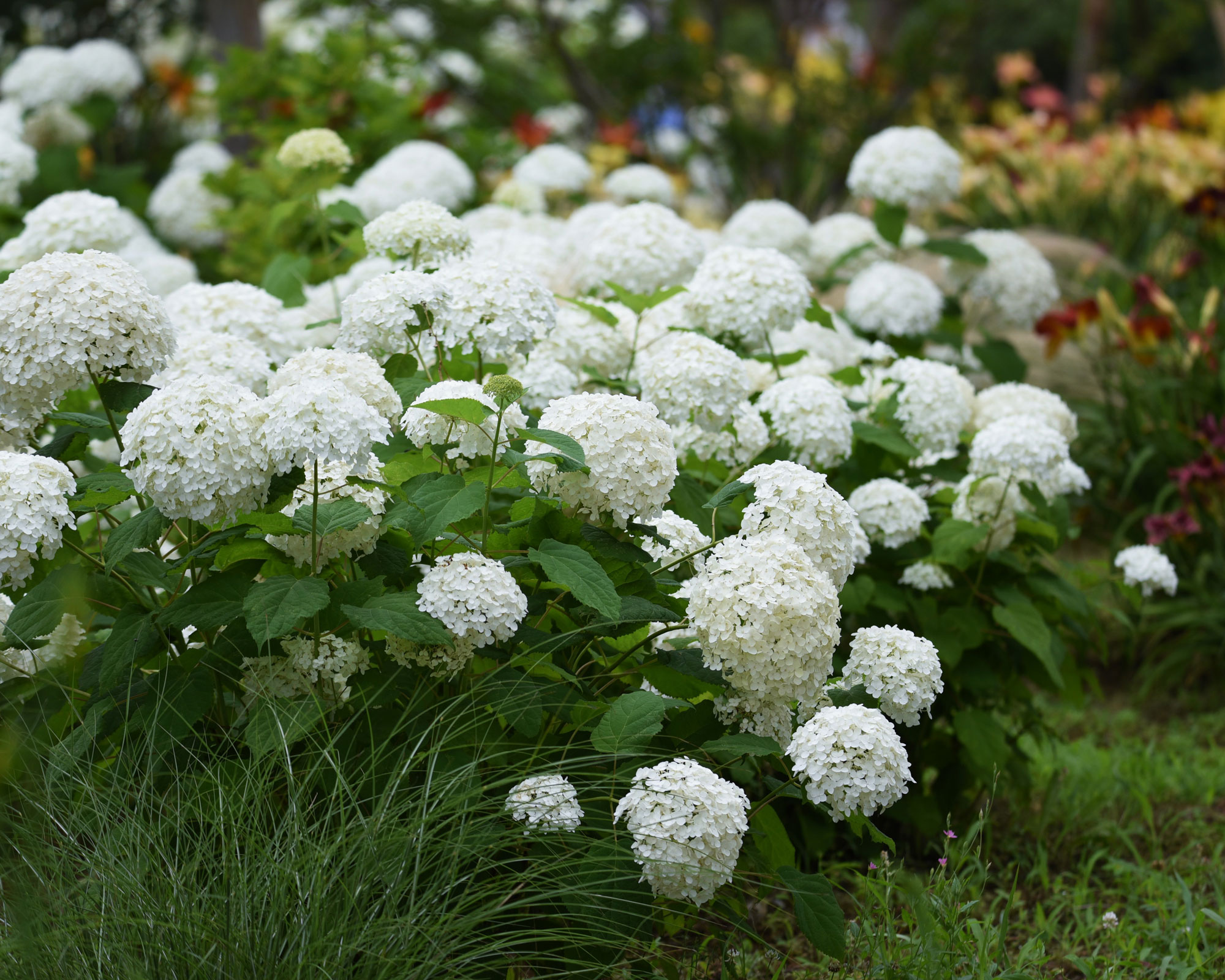
One of the most popular hydrangeas, this has graceful arching branches, luxe white pompom blooms and heart-shaped leaves. Grow in moist but well-drained soil in full sun or partial shade; it loves spring mulching. Even better if you bed is in a sheltered corner or against a warm wall.
Height: 5 to 8ft (1.5 to 2.5m)
Spread: 5 to 8ft (1.5 to 2.5m)
10. Baltic parsley (Conolophium denudatum)
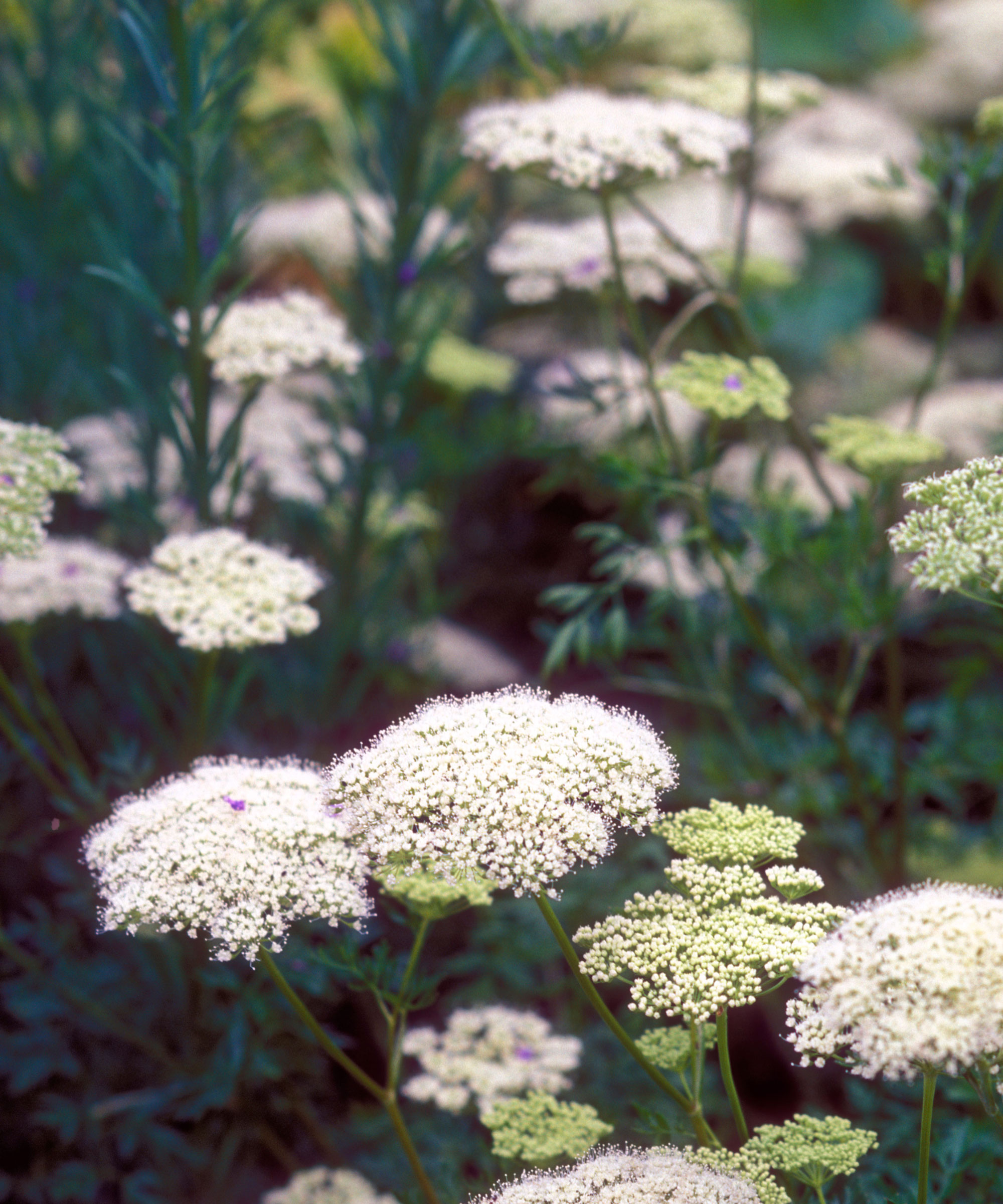
A fast-growing, semi-evergreen, clump-forming umbellifer with greenish-white flowers in summer and fall and fern-like foliage, this adds an interesting vertical to the bed. Bees and butterflies love this plant and it’s good as a dried flower too. Likes a generous mulch in autumn.
Height: 3 to 5ft (1 to 1.5m)
Spread: 4 to 20in (10 to 50cm)
What can you plant in a no dig garden?
A no dig garden is often planted with vegetables. In the first year, shallow rooted crops can be best – think lettuce and radishes, for example. After that a full range of crops could be grown for the table.
‘A no dig garden is also ideal for growing flowers,‘ says Lucy Searle, global editor in chief of Homes & Gardens. ‘I’d recommend it if you’re planning a cut flower garden when the time saved by following the no dig method can instead be spent creating arrangements.’
Can you make a flower bed without digging?
You can make a flower bed without digging. It is necessary to put down a barrier layer first to suppress weeds – brown cardboard that’s biodegradable is ideal. Follow with an organic mulch, then plant the flowers you’ve selected for the bed.
‘Bear in mind that you will need to top up the layer of mulch from time to time,’ says Lucy Searle, global editor in chief of Homes & Gardens.

Lifestyle journalist Sarah Wilson writes about garden design and landscaping trends for Homes & Gardens. She has studied introductory garden and landscape design, and also has an RHS Level 2 qualification in the Principles of Plant Growth and Development. She is a regular contributor to Homes & Gardens and Livingetc. She has also written for Country Living, Country Homes & Interiors, and Modern Gardens magazines